Episode 288: Slow Flowers Visits Arizona’s Whipstone Farm with Shanti Rade
March 15th, 2017
Podcast: Play in new window | Download
Subscribe: Apple Podcasts | Podcast Index | RSS | More
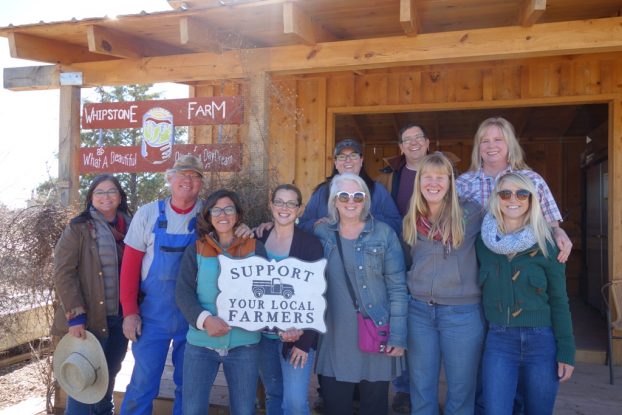
Arizona Grown, folks! From left (front row): Anne, Cory, Shanti, Terri, Debra, Dani & Morgan; (back row): Melissa, Les & Lindsay. We’re posing in front of the Self-Serve farm stand at Whipstone.
UPDATE: If you want to learn more about the once-vibrant history of Arizona’s cut flower farming community, read this January 2016 article by Kathy Nakagawa that appeared in the Arizona Republic, “When Phoenix Bloomed.”
I’ve had Arizona on my mind quite a bit lately and it’s not only because Seattle, like most of the rest of the country, has been cold, wet and dreary for months. So when my travels brought me to Scottsdale, Phoenix and Mesa for family reasons, I followed through on my promise to myself to visit a flower farm.
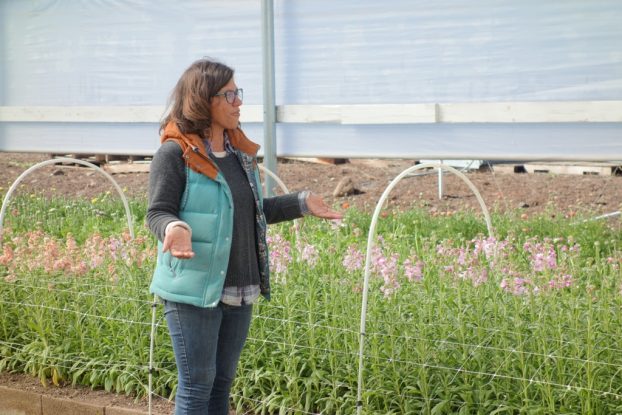
Shanti led us on a tour of Whipstone Farm, including this pristine high tunnel where stock and ranunculus were blooming.
Lucky for me, I’ve been collecting Slow Flowers friends in Arizona. We all agreed to meet at Whipstone Farm in Paulden, where Shanti and Cory Rade and theor family grow CSA food crops AND lots of flowers. The farm is a Slowflowers.com member and I was so happy to visit there on March 1st, along with a diverse and super passionate cadre for our informal Slow Flowers Arizona meet-up.
They included Terri Schuett of Happy Vine Flowers, a freelance floral designer and horticulture student-turned-flower farm intern at Whipstone Farm, and Dani Baker, Whipstone Farm’s flower manager. It was fun to reunite with all three of them having met in the past.
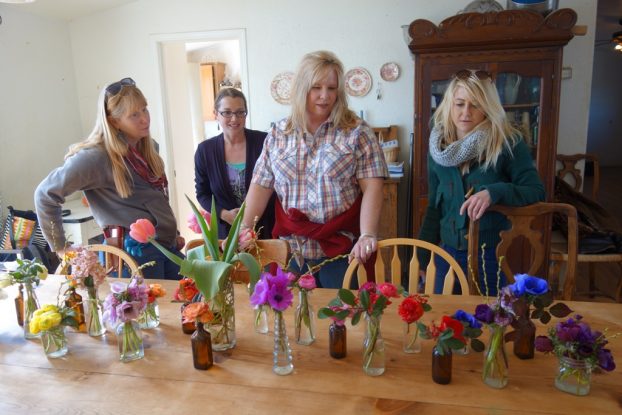
Dani, Terri, Lindsay and Morgan evaluate the Whipstone stems, arranged by Terri for our luncheon centerpiece
The drive from Scottsdale to Paulden takes you sort of in the northbound direction toward Flagstaff and then at some point you head west toward Chino Valley. It’s pretty remote and pretty beautiful. Who would think that agriculture lives here?
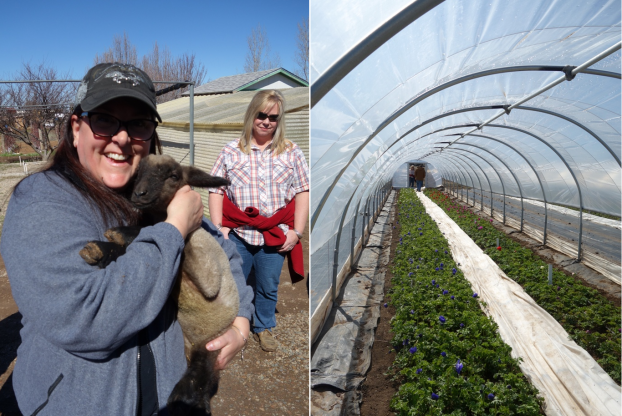
Melissa Saltzman found herself a baby lamb (named “Fern”) while Lindsay looks on; right – anemones in the high tunnel.
My fabulous driving companions included Anne E., a Scottsdale micro flower farmer who specializes in garden roses, herbs and citrus, among other things at Tre Soli (who I first met, by the way, when she attended a Field to Vase Dinner in Carlsbad, CA in 2015), and Morgan Anderson of the.flori.culture, based in Scottsdale, who you heard on this podcast last year when she was finishing up her PhD in Floral Design/Floriculture at Texas A&M. Morgan and I hopped into Anne’s car and the 120 miles passed quickly while we gabbed away about all things floral.
Others who met us at Whipstone included Lindsay Statler of Green Creek Gardens in Dewey, Arizona, a Slow Flowers member whose farm is about 30 miles away from Whipstone, and Melissa & Les Saltzman, friends and flower farmers I’ve met through the Alaska Peony Growers Association because – yes – they live in Scottsdale, Arizona and own a peony farm called Alaskan Legacy Peonies, in Homer (talk about a commute!) I wanted them to meet and learn from flower farmers in their home state where the conditions are probably 180 degrees opposite from Alaska’s peony fields.
When we arrived, Shanti took us on a wonderful walking tour of Whipstone Farm before lunch. She told us the story of how the farm got started, so I’ll let you listen to the interview to hear more. With 15 acres and more than 100 varieties of vegetables and cut flowers, Shanti and Cory have made a life for themselves, their four children and countless CSA customers who buy shares each year.
As they write on the Whipstone Farm web site: “We farm with our heart and health in mind. We do not use any synthetic fertilizer or chemical pesticides. We enjoy growing food for our community not only as a means of providing healthy sustenance, but also as a way to bring people together. We welcome you to come out and see our farm, to learn about where your food comes from and meet the folks who grow it.”
You can find their produce and flowers every week at the Prescott, Flagstaff and Chino Valley Farmers Markets. Whipstone also has an on-farm self-serve stand where friends, customers and neighbors purchase products on the honor system. The farm stand is open year round and customers are welcome to stop in during daylight hours – no doors, so it’s always open. Quick, self-guided farm tours often occur when people come to buy veggies and flowers.
Shanti came into farming by chance through a high school internship and after working on several different farms around the country, she returned to school for a degree in Agroecology from Prescott College. At Whipstone, she oversees crop planning, seed starting and everything to do with flowers. She also handles office management and marketing, even though it’s not always her favorite part about farming.
Cory is a self-taught farmer, learned through lots of trial and error and even more determination. What he really loves about farming is food and how it brings people together; growing the food is the first step in making that happen. The resident repair man on the farm, Cory is busy, since something seems to break on the farm almost every day. But, he says “getting to eat the chiles I grow makes it all worth it.”
After our wonderful farm tour, we gathered around Shanti and Cory’s kitchen table, a long, wooden trestle-style table with room for everyone, which I’m sure they need when the entire family is together. Anne served us a delicious homemade meal of lentil soup, salad, veggies, breads, spreads and Arizona-made wine. Thank you, Anne, for being our wonderful caterer!
I know you will enjoy this interview I recorded with Shanti, and you’ll also hear bonus audio, recorded when Terri Schuett took us on a quick tour of the horticulture and agribusiness program at Yavapai College in Chino Valley. She has definitely been smitten with the flower-growing bug, a path I see more and more florists taking as they become curious about the flowers they design with. Even though our conversation is brief, you’ll learn a thing or two about aquaculture and floriculture in the desert, of all places!
Here’s how to find and follow these intrepid Arizona Slow Flowers Folks!
Find Whipstone Farm on Facebook
Follow Whipstone Farm on Instagram
See Whipstone Farm on Pinterest
Discover Whipstone Farm on Twitter
Find Terri Schuett/Happy Vine Flowers on Instagram
Find Morgan Anderson on Instagram
Find Lindsay Statler on Instagram
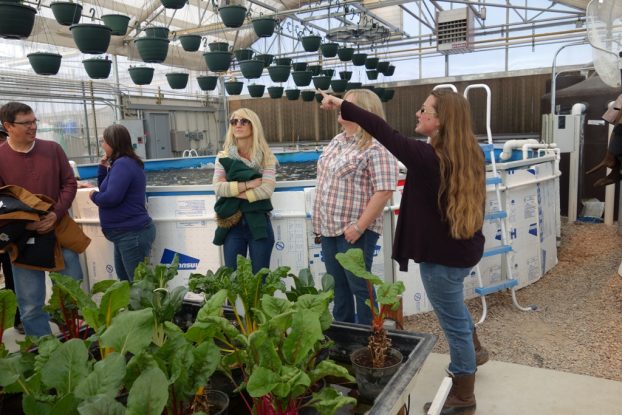
Terri led us on a second tour of the ag program at Yavapai College in Chico Valley, not far from Whipstone. She’s studying horticulture there.
 The Slow Flowers Podcast has been downloaded more than 168,000 times by listeners like you.
The Slow Flowers Podcast has been downloaded more than 168,000 times by listeners like you.
THANK YOU to each one of you for downloading, listening, commenting and sharing. It means so much.
If you value the content you receive each week, I invite you to show your thanks and support the Slow Flowers Podcast with a donation — the button can be found on our home page in the right column.
Your contributions will help make it possible to transcribe future episodes of the Podcast.
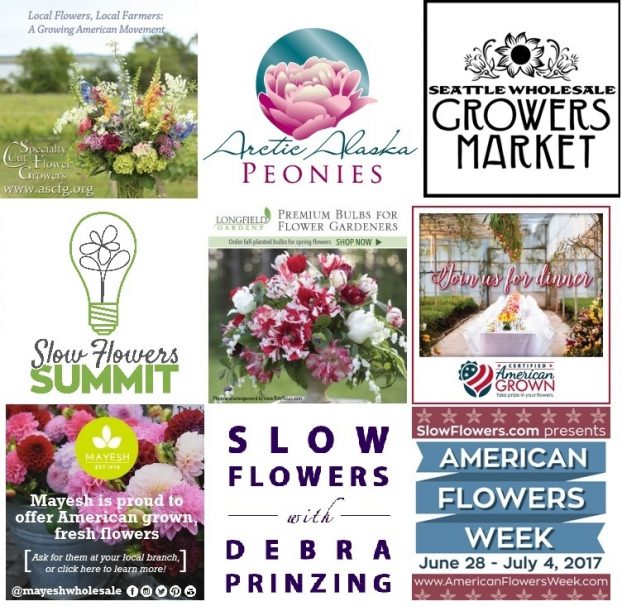 Thank you to our lead sponsor for 2017: Certified American Grown Flowers. The Certified American-Grown program and label provide a guarantee for designers and consumers on the source of their flowers. Take pride in your flowers and buy with confidence, ask for Certified American Grown Flowers. To learn more visit americangrownflowers.org.
Thank you to our lead sponsor for 2017: Certified American Grown Flowers. The Certified American-Grown program and label provide a guarantee for designers and consumers on the source of their flowers. Take pride in your flowers and buy with confidence, ask for Certified American Grown Flowers. To learn more visit americangrownflowers.org.
We’re also grateful for support from Arctic Alaska Peonies, a cooperative of 50 family farms in the heart of Alaska providing high quality, American Grown peony flowers during the months of July and August. Visit them today at arcticalaskapeonies.com
And welcome to our newest sponsor, the Seattle Wholesale Growers Market, a farmer-owned cooperative committed to providing the very best the Pacific Northwest has to offer in cut flowers, foliage and plants. The Growers Market’s mission is to foster a vibrant marketplace that sustains local flower farms and provides top-quality products and service to the local floral industry. Find them at seattlewholesalegrowersmarket.com.
Longfield Gardens has returned as a 2017 sponsor, and we couldn’t be happier to share their resources with you. Longfield Gardens provides home gardeners with high quality flower bulbs and perennials. Their online store offers plants for every region and every season, from tulips and daffodils to dahlias, caladiums and amaryllis. Visit them at lfgardens.com.
And finally, thank you Association of Specialty Cut Flower Growers. Formed in 1988, ASCFG was created to educate, unite, and support commercial cut flower growers. It mission is to help growers produce high-quality floral material, and to foster and promote the local availability of that product. Learn more at ascfg.org
I’m Debra Prinzing, host and producer of the Slow Flowers Podcast. Next week, you’re invited to join me in putting more American grown flowers on the table, one vase at a time. And If you like what you hear, please consider logging onto Itunes and posting a listener review.
The content and opinions expressed here are either mine alone or those of my guests alone, independent of any podcast sponsor or other person, company or organization.
The Slow Flowers Podcast is engineered and edited by Andrew Brenlan. Learn more about his work at KineticTreeFitness.com.









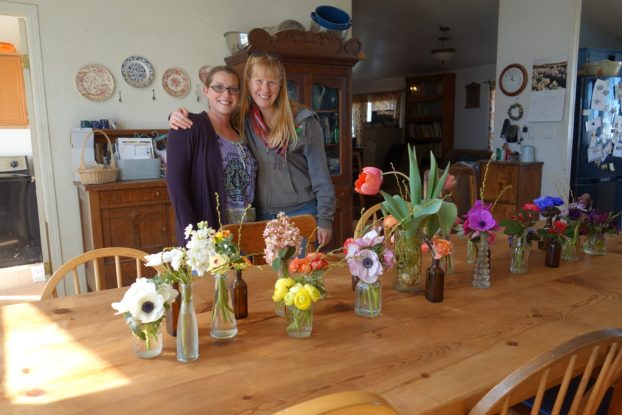
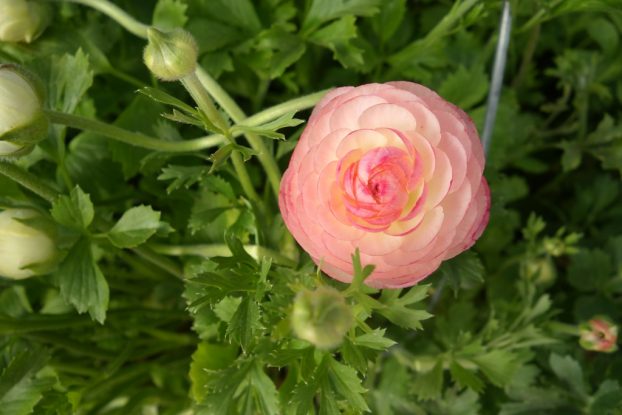
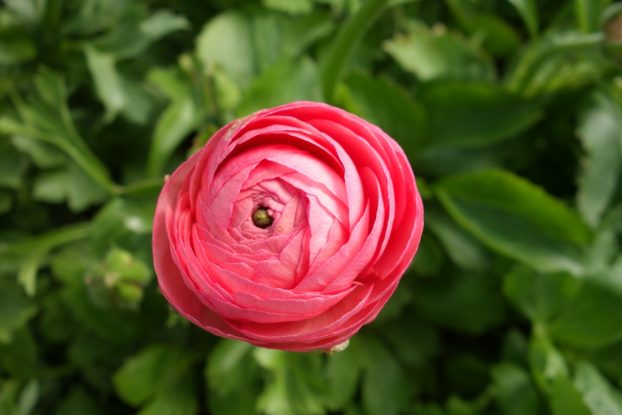
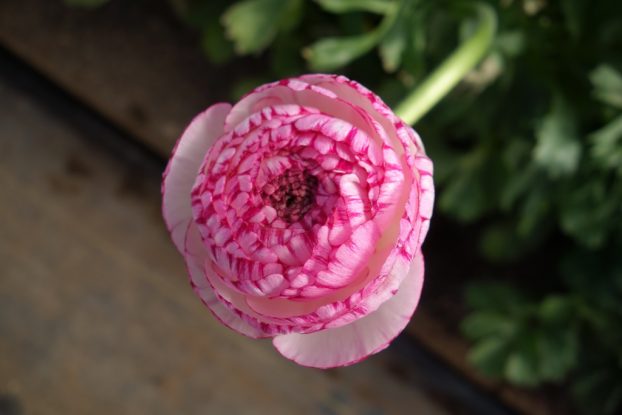
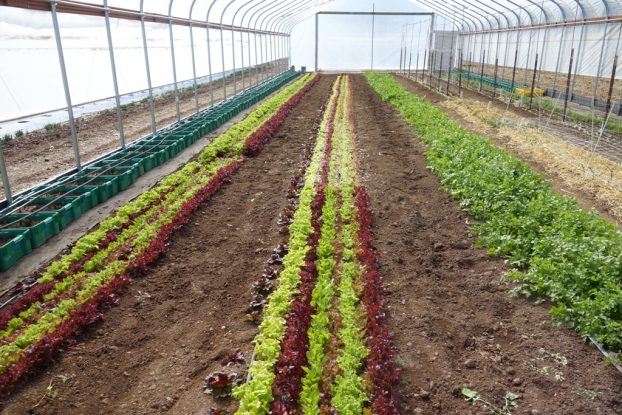
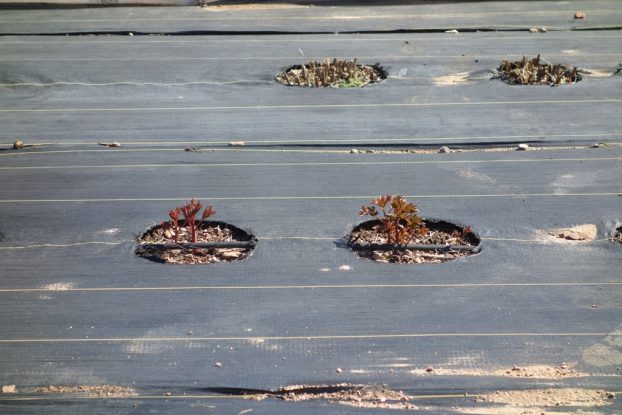
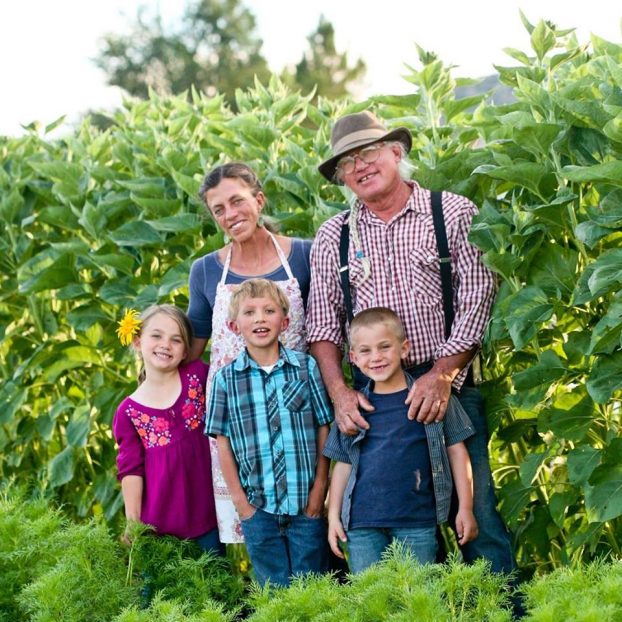
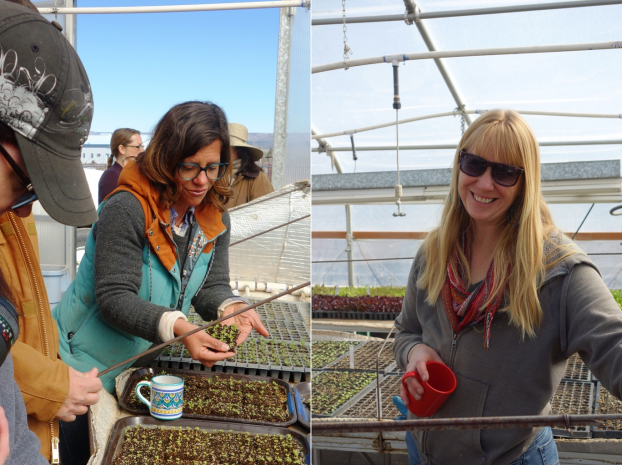
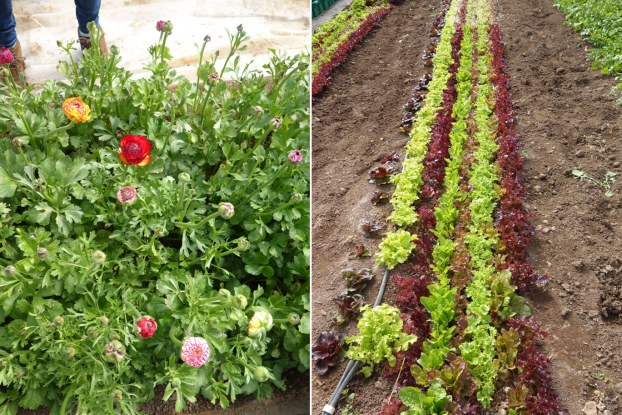
November 9th, 2017 at 9:41 pm
[…] four of us reunited after our fantastic meet-up earlier this year when a number of Slow Flowers members visited Shanti and Corey Rade’s farm in Paulden, Arizona. […]
December 27th, 2017 at 4:16 pm
[…] highlight of March was my visit to Arizona and the fabulous meet-up of flower farmers and florists at Whipstone Farm in Paulden, Arizona. Ten of us gathered, many who made the drive from the […]
August 5th, 2020 at 8:27 am
[…] You’ll be inspired by its focus on the importance of local and sustainable flowers and by the stories of all three farmers profiled, including Anne Jensen of Anne E’s Garden Fresh in Phoenix, also a Slow Flowers member, and Shanti Rade of Whipstone Farm in Paulden, a past guest of this podcast. […]